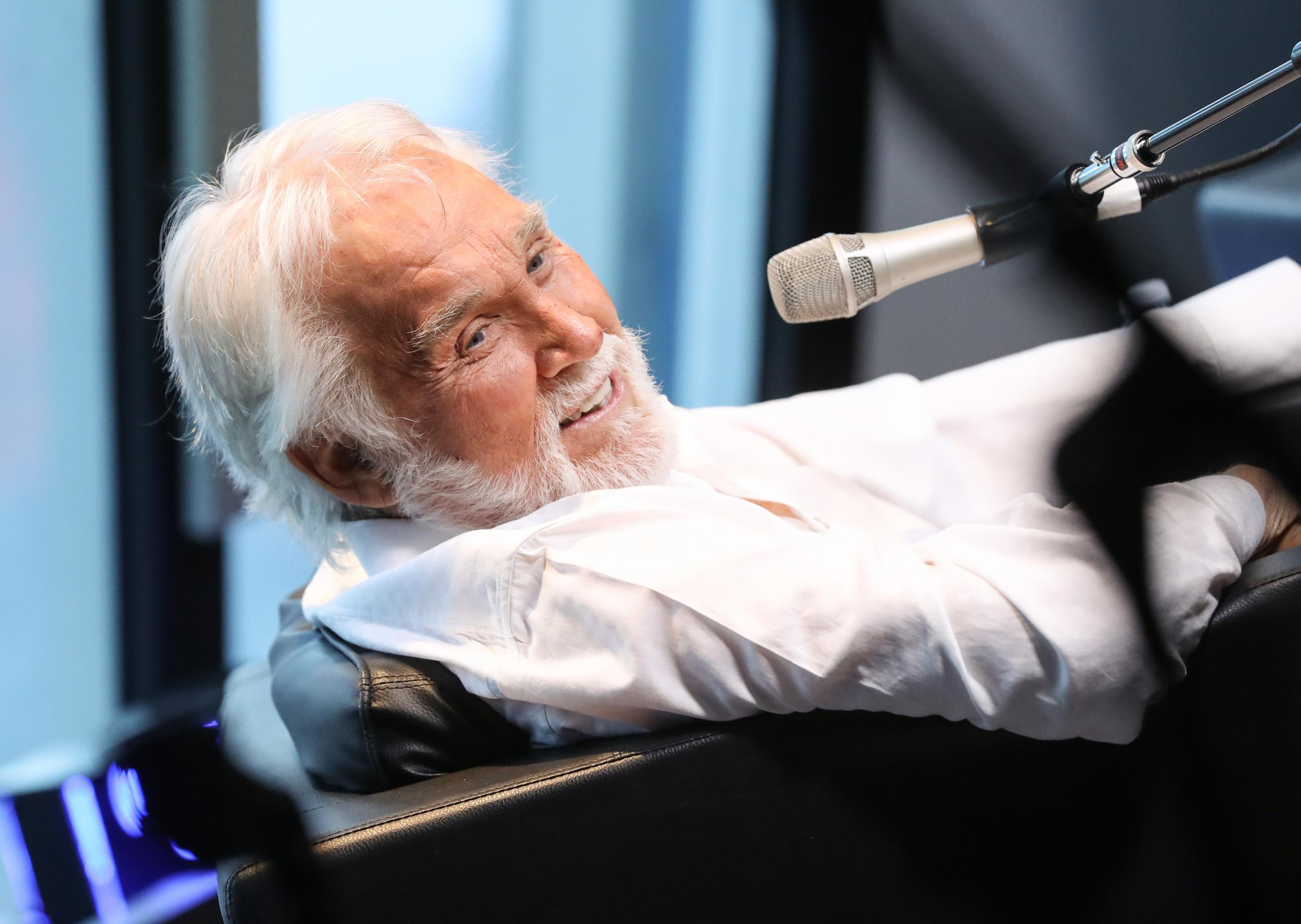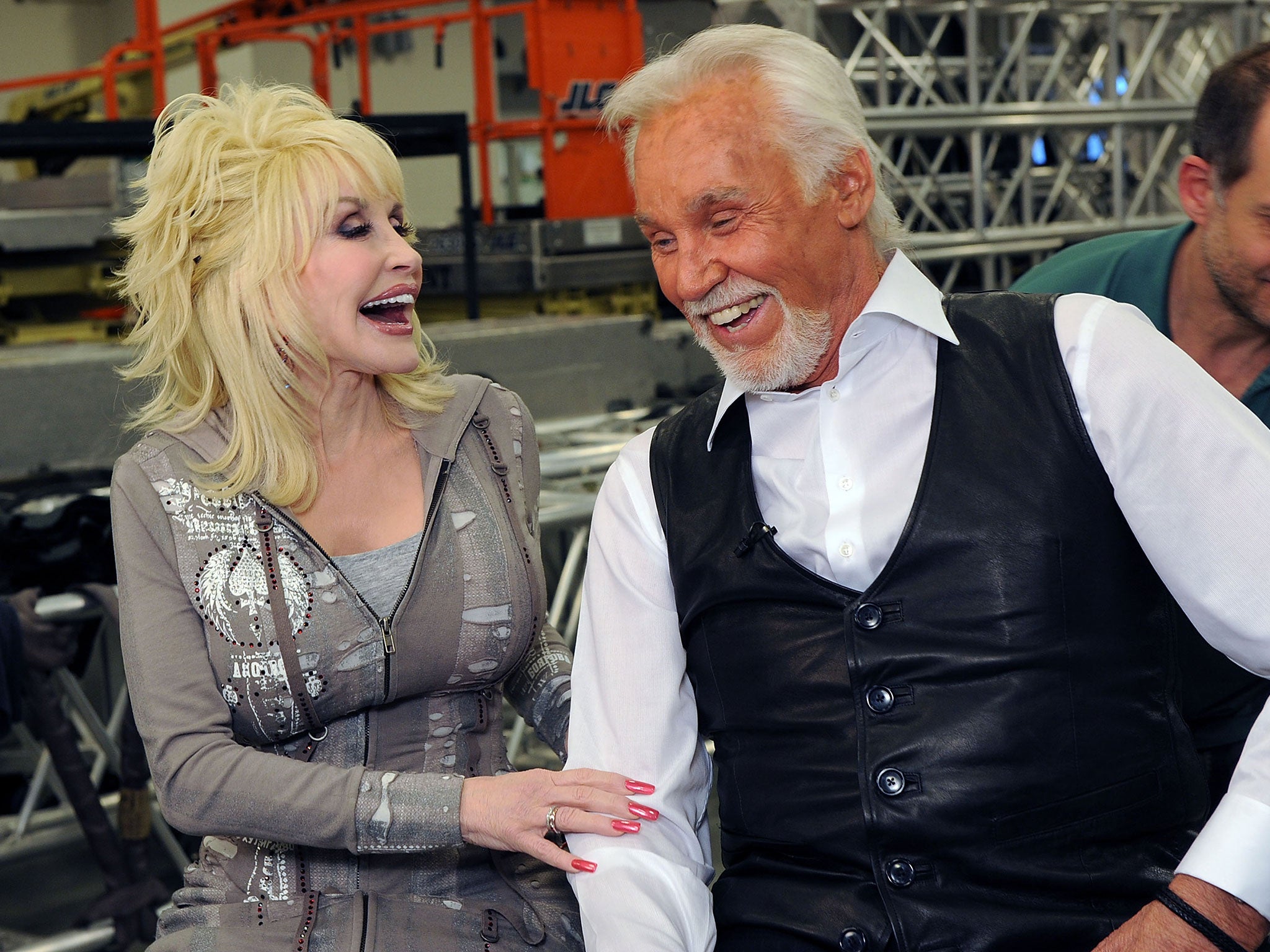Kenny Rogers: A campfire storyteller who never took himself too seriously
The country-pop superstar who became one of the biggest-selling artists of all time has died aged 81. Helen Brown pays tribute


I knew something slightly weird was going on when I first saw Kenny Rogers, because The Muppets had – disconcertingly – grown hands in his company. When he appeared on The Muppet Show to sing “The Gambler” in 1979, one of them used these disconcerting new appendages to light him a cigarette, before the beardy man sang a song instructing us kids how to shoot whisky, play cards for money, and pray to die in our sleep. Kids’ TV was definitely different back then and, as a creepy little Wednesday Adams of a child, I loved to sneak a peak between my fingers into the strange darkness of the adult world. I loved a good tune and a story that left space for the imagination to drift.
There seemed to be something magical in the combination of straight-shooting country music and haunting narratives hovering around the fringes of the era’s radio: Rogers’ “The Gambler” and Glen Cambell’s “Witchita Lineman” (1968) were my favourites.
Much of the credit for the greatness of “The Gambler” must go to songwriter Don Schlitz. But Rogers – one of the best-selling artists of all time – was a proper campfire storyteller. I loved his casual phrasing and the cowboy croak in his voice that suggested a man who’d kept his counsel through long days on the trail, waiting until he had something worth saying. No wonder that he was the one to take a song “The Gambler” into the charts, even though it had been recorded by Schlitz and other country artists before him.
Born in Houston, Texas in 1938, Rogers was the fourth of eight children born to a carpenter and a nurse – perhaps that’s where his vocal combination of craft and compassion come from. His singing talent certainly didn’t come from his deeply religious, kind and ambitious mother, who he often joked sang so badly that people would leave the room. Although his mum was called Lucille, she wasn’t the subject of his 1977 hit of that name, another great story song beginning: “In a bar in Toledo / Across from the depot / On a barstool, she took off her ring / I thought I’d get closer / So I walked on over …”
Rogers’ alcoholic dad wasn’t very involved with him, and hurt him deeply into adulthood by failing to acknowledge his success. “I think that one of the real tragedies in my life is that I never really got to know why my dad drank,” he wrote in his 2012 memoir, Luck or Something Like It. “He was an alcoholic, but during that time, post-War World Two, a lot of people were unemployed and ended up drinking.
“He couldn’t really support his family and I think it just broke him down. It breaks my heart that I didn’t know that before he passed away. I never drank in my life.
“I saw it destroy him and saw it destroy other people I work with, so I made a conscious decision about this. Plus I didn’t know if there was any predetermination for me as the son of an alcoholic to become addicted, so I just never tried it.”
Seduced by rock’n’roll, Rogers began recording in the Fifties, retaining a pop sound as he moved into country. Music probably felt like a safer place to express his emotions than with other people: “Music, at least for me,” he said, “is like a mistress, and she’s a difficult mistress for a wife to compete with.”

Over a career that yielded 120 hit singles – of varying quality – he maintained an easy-going narrative appeal. I’ve always been fond of “Sweet Music Man”, which Rogers wrote on an airplane after bumping into Jessi Colter, the wife of Waylon Jennings.
Enjoy unlimited access to 100 million ad-free songs and podcasts with Amazon Music
Sign up now for a 30-day free trial. Terms apply.
ADVERTISEMENT. If you sign up to this service we will earn commission. This revenue helps to fund journalism across The Independent.
Enjoy unlimited access to 100 million ad-free songs and podcasts with Amazon Music
Sign up now for a 30-day free trial. Terms apply.
ADVERTISEMENT. If you sign up to this service we will earn commission. This revenue helps to fund journalism across The Independent.
“They were having problems at the time and she thought that the whole band just said ‘yes’ to anything Waylon wanted, whether it was bad for him or not,” he wrote. “And she said that even with all the problems, the moment Waylon actually sang, he was her ‘sweet music man’. So that gave me the basis. But it was also about my own fears as a singer and seeing how it could end up.”
There is a verse that goes: “Sing your song sweet music man / You travel the world with a six-piece band / That does for you, what you ask ‘em to / And you try to stay young / But the songs you’ve sung to so many people / They’ve all begun to come back on you.” Rogers claimed this was why he never had a six-piece band, preferring to perform with seven.
Rogers could also be a bit ridiculous: those shades, that beard, and the shirts unbuttoned to the waist were impossibly cheesy. But the fact he never took himself too seriously was all part of the appeal. Someone launched a website for Men Who Look Like Kenny Rogers. When asked about it, the real thing replied that his favourite was “Hot Tub Kenny”.

More awkwardly – if more predictably for a Texan of his vintage – he was a big fan of Donald Trump. “I think his problem is that he says what everyone wants to hear, but he doesn’t say it well,” he said before Trump’s election. “I love what he says, I have to admit. He can be president and not owe anybody anything; he’s one of the few people has the money to do it, and has the guts to do it.”
He famously married five times, later acknowledging that it was a pet goat that kept him “centred”. “Every woman I married, I really loved when I married her,” he once said. “And I don’t blame them for the marriage falling apart. I blame myself and my chosen field of music.”

Yet he was great at partnering women in song: his low, unshowy rumble made a great backdrop for Tammy Wynette, Kim Carnes, Dottie West and Sheena Easton. Most famously, he sang “Islands in the Stream” with Dolly Parton.
Written by The Bee Gees, the platinum-selling 1983 smash took its title from a novel by Ernest Hemingway and was originally intended for Marvin Gaye. In its cockle-warming way, the song is the perfect anthem for people stuck in isolation this week, its lyrics expressing our solidarity at a distance: “Islands in the stream / That is what we are / No one in between / how can be wrong ... We ride it together, uh huh ... We start and end as one.”
Join our commenting forum
Join thought-provoking conversations, follow other Independent readers and see their replies
Comments
Bookmark popover
Removed from bookmarks